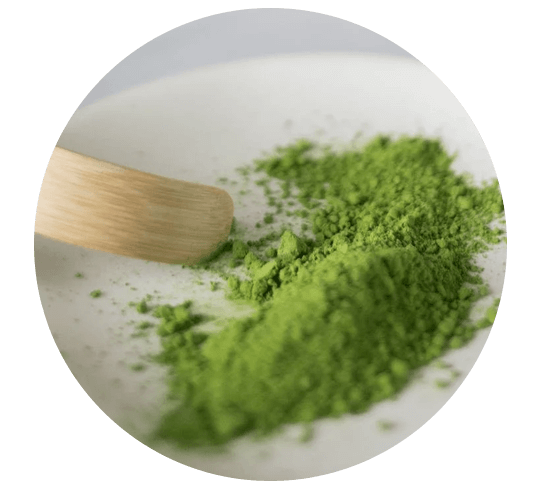Kratom has become increasingly popular in the United States in recent years as an alternative to prescription opioids for the treatment of chronic pain. The Drug Enforcement Administration (DEA) has not classified kratom as a narcotic, but it’s banned in several states. Some medical experts believe kratom to be habit-forming and potentially harmful. People who take more than five grams of kratom three times a day are at most risk for dependence and potentially symptoms of withdrawal.
What Is Kratom?
Kratom (mitragyna speciosa) is a natural herb that has been used for centuries to treat pain, anxiety, and depression by indigenous people. It’s derived from the mitragyna speciosa tree in Southeast Asia and contains alkaloids that interact with the brain to potentially produce euphoria and relief from pain. Kratom contains mitragynine and 7-hydroxymitragynine. These alkaloids have been shown to offer:
- Pain relief
- Reduced inflammation
- Muscle relaxation properties

Can You Be Addicted to Kratom?
Research on whether kratom is physically addictive is ongoing. Some experts believe that taking kratom can become addictive, while others claim that it is not addictive at all. The truth is, kratom can be habit-forming, but it is not as addictive as other opioids such as heroin or prescription painkillers.
If you use kratom regularly and then abruptly stop using it, you may experience kratom withdrawal symptoms. This is a sign of addiction. Kratom withdrawal symptoms can include:
- Irritability
- Diarrhea
- Nausea
- Muscle aches
These withdrawal symptoms are usually not severe enough to compel someone to start using kratom again, as is often the case with opioids.
Using kratom with other drugs or alcohol can increase the risk of addiction. Kratom can enhance the effects of other substances, which can lead to compulsive use and addiction. Additionally, using kratom with other drugs or alcohol can also be dangerous, as it can increase the risk of overdose.
What Are Kratom Withdrawal Symptoms?
Kratom attaches to some of the same opioid receptors as heroin and other opioids. That may be why kratom withdrawal symptoms share some similarities to opioid withdrawal symptoms.
Kratom withdrawal symptoms can include:
- Anxiety
- Depression
- Mood swings
- Irritability
- Insomnia
- Muscle aches and pains
- Nausea and vomiting
- Restlessness
- Cravings
- Goosebumps
- Diarrhea
- Fever
These symptoms can be managed by gradually reducing the dose of kratom, tapering off slowly over a period of weeks or months. Additionally, over-the-counter medications such as ibuprofen and acetaminophen can help relieve muscle aches and pains. If you are a regular kratom user, you should not quit taking it before consulting a medical professional.
What Causes Kratom Withdrawal Symptoms?
The withdrawal symptoms associated with kratom can be caused by several factors. One of the most common causes is dependence, which can develop after using kratom regularly for a period of time. When you abruptly stop using kratom, your body may react by producing withdrawal symptoms. Using kratom with other drugs or alcohol can also cause withdrawal symptoms.
Generally, alcohol and drug abuse impact your central nervous system (CNS). When you become dependent on kratom or any drug, your brain and body have gotten used to having these substances in your system. They begin depending on drugs and alcohol to function normally because they think this state is the new normal. When you stop taking drugs or alcohol, your central nervous system goes into overdrive trying to rebalance your brain chemicals and CNS messaging without the presence of substances. This is what causes withdrawal symptoms. Withdrawal is a sign that your body is trying to return to normal without drugs and alcohol.
How Long Does Kratom Withdrawal Last?
The kratom withdrawal timeline can last anywhere from a few days to a few weeks, depending on the severity of the addiction. Some of the symptoms of kratom withdrawal include irritability, fatigue, nausea, and headaches. Kratom can cause withdrawal, but in most cases, withdrawal symptoms are not life-threatening and there are ways to manage the symptoms.
Symptoms of kratom withdrawal typically appear within 12 to 48 hours after stopping kratom use. The physical symptoms generally last one to three days, although some people report feeling sick for more than three days and up to a week.
Are There Side Effects of Kratom?
Beyond kratom withdrawal, the drug itself can come with uncomfortable side effects. The most common side effect from kratom is nausea, but this usually only occurs when consumed in high doses. Some other potential kratom side effects include:
- Tremors
- Nausea
- Constipation
- Aggression
- Vomiting
- Headache
- Dizziness
- Dry mouth
- Confusion
What Is Kratom Detox Like?
Detoxing from kratom can be a difficult process for regular users who have been abusing kratom in large quantities, but there are many resources available to help you through it. One option is to enter a drug or alcohol detox center specifically dedicated to helping people overcome addiction. An addiction facility like Vogue Recovery Center provides a safe and comfortable environment where you can get the support you need to detox safely.
The first step in kratom detox is typically a taper, where you wean off kratom gradually. This helps minimize withdrawal symptoms. You should detox in a safe and comfortable environment. The safest place is a detox program at an addiction treatment center. Be sure to stay hydrated and get plenty of rest. The symptoms of kratom withdrawal can be quite taxing, so it is important to take care of yourself both physically and emotionally.
What Medications Help Kratom Withdrawal?
Kratom users may experience psychological withdrawal symptoms as well as physical symptoms. There is no clinical standard for treating kratom withdrawal yet. Some medical professionals use medications like antidepressants or anticonvulsants to help ease withdrawal symptoms. Self-care measures like exercise and yoga can also be helpful.
In severe cases of kratom abuse, some physicians have used the partial opioid antagonist buprenorphine to help with kratom withdrawal and cravings. This is the same medication often used to treat people in recovery from heroin addiction or other opioid drugs.
Can Kratom Withdrawal Be Dangerous?
Kratom withdrawal can be dangerous if not done correctly. If you are detoxing from kratom, it is important to do so under the care of a professional. Severe symptoms of kratom withdrawal can include nausea, vomiting, diarrhea, and extreme fatigue. With vomiting and diarrhea there is always a risk of dehydration, which can lead to dangerous symptoms like seizures and cardiac arrest. Professional medical oversight is important when you stop any type of addictive substance. There is always a risk you could experience withdrawal. Consult your doctor before quitting kratom or other drugs.
What Comes After Kratom Detox?
Addiction is a disease that affects millions of people all over the world. No matter what the addiction, it’s important to get professional substance abuse treatment after detoxing.
Detoxing is the first step in getting treatment for substance use disorders. It’s the process of removing addictive substances from your body. But detoxing alone isn’t enough. You also need to address the reasons why you abuse drugs or alcohol to maintain sobriety. Many people find that time in a rehab center provides the support and structure they need to refrain from drugs or alcohol in early recovery when the risk of relapse is high.
When you quit kratom, addiction treatment programs can help you learn about your substance use disorder and the factors that may have contributed to it. Professional addiction treatment can also help you develop coping skills and relapse prevention strategies. Treatment includes approaches that help you learn how to cope with stressors without using kratom, and it helps you understand why you began abusing kratom in the first place. Additionally, behavioral therapy can help you recognize and avoid situations that may lead to relapse. Common approaches at an addiction treatment center include:
- Individual therapy
- Group therapy
- Family therapy
- Trauma therapies like eye movement desensitization and reprocessing (EMDR)
- Dual diagnosis treatment for co-occurring mental illness like depression, anxiety, and bipolar disorder
- Holistic approaches like yoga, art therapy, and music therapy
Many addiction treatment centers also provide support groups and aftercare services. These services can help you stay accountable and connected to a community of people who are also working to overcome drug or alcohol addiction.
Looking For Help? Vogue Recovery Center Is Here for You
If you or a loved one is struggling with kratom use or other substance abuse, Vogue Recovery Center can help. We offer levels of care that include medical detox and inpatient or outpatient treatment options. Vogue is a trusted and accredited leader in evidence-based addiction treatment, and we can help you rebuild your life in recovery.
- https://www.dea.gov/factsheets/kratom
- https://nd.az.gov/sites/default/files/news/Kratom.pdf
- https://www.frontiersin.org/articles/10.3389/fphar.2021.775073/full
- https://nida.nih.gov/research-topics/kratom
- https://www.dovepress.com/current-perspectives-on-the-impact-of-kratom-use-peer-reviewed-fulltext-article-SAR
- https://journals.lww.com/journaladdictionmedicine/Abstract/2021/04000/Treatment_of_Kratom_Withdrawal_and_Dependence_With.15.aspx

Medically Reviewed by Kelsey Jones, MS, LPC






